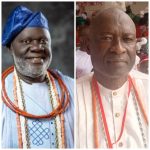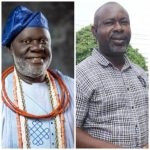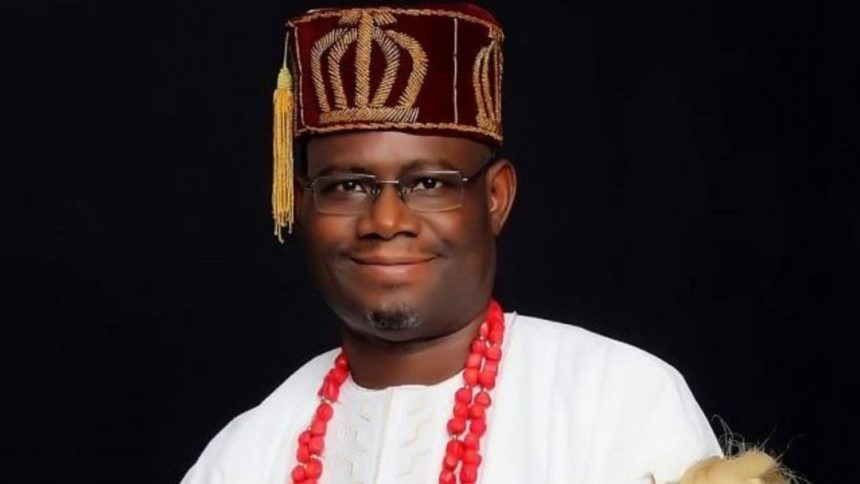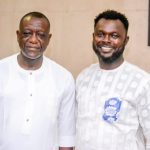Digital Learning is Failing Our Kids – Isiaq Ajibola
In a rapidly changing world, education is increasingly driven by technology. Laptops have replaced textbooks, apps have swapped notebooks, and learning is now delivered through screens. However, a growing number of research is beginning to challenge the digital dominance.
A striking example comes from Sweden , once one of the world’s most enthusiastic adopters of digital education. After years of heavy investment in e-learning tools, the Swedish government has made a dramatic policy shift back to traditional textbooks. Why? Evidence has emerged showing that digital learning impairs students’ abilities to read deeply, memorize effectively, and think critically.
Sweden’s Education Minister, Lotta Edholm, was categorical when she said “We need more printed books in schools. Research is clear, too much screen time is bad for learning.” Her statement was based on findings from the Swedish National Agency for Education, which reported declining literacy and comprehension among students immersed in screen-based learning environments.
Several reports and research findings in Nigeria lend strong support to the continued importance of textbooks in education. For instance, a Comparative Study on Digital and Print Media in Africa commissioned by the Association for the Development of Education in Africa (ADEA) highlight the roles of digital and print media in enhancing literacy across various African countries, including Nigeria. The study found that despite the growth of electronic publishing, printed books remain indispensable—largely due to persistent challenges such as limited access to digital devices and unreliable internet connectivity. It emphasized that “reading on paper will always remain important and enjoyable,” reinforcing the enduring value of textbooks in classroom learning.
Similarly, a 2015 study titled Impact of E-Learning and Digitalization in Primary and Secondary Schools, conducted at Greensprings School in Lagos State by Sunday Tunmibi et al., and published in the Journal of Education and Practice (Vol. 6, No. 17), revealed that while digital tools can boost student engagement, their effectiveness heavily depends on sufficient infrastructure and teacher readiness. These findings underscore the practicality and reliability of traditional textbooks, especially in environments where digital learning remains inconsistent or under-resourced.
Research from the United States shows why the emphasis on digital learning should concern us. A study from Stanford University, USA found that students who frequently multitask with digital media perform worse in memory retention and attention.
Sweden has responded to this finding by quickly investing the sum of 104 milion euro, approximately ₦176.8billion, between 2022 and 2025 to reintroduce printed textbooks and reemphasize traditional teaching methods in the country. Importantly, this shift does not reject technology altogether. Rather, it promotes a balanced approach—using digital tools thoughtfully and gradually as students mature.
In stark contrast, the Nigerian government appears to be moving in the opposite direction. Policies and initiatives are rapidly promoting tablets, e-learning platforms, and screen-based classrooms, often at the expense of investing in printed materials and school libraries. While digital access is important, we must be cautious about prioritizing trends over educational sustainability.
In May 2023, the federal government introduced the National Digital Learning Policy (NDLP), focused solely on digital integration in classrooms, with no mention of textbooks or traditional learning methods.
By April 2025, the World Bank approved a $1.08 billion, approximately ₦1.62 trillion, loan for Nigeria, with $500 million, approximately, ₦750 billion allocated to improving education quality. Yet, textbooks were notably absent from the funding priorities.
The federal government’s 2025 education budget is approximately ₦3.52 trillion, representing about 7.3% of the national budget. Several states also announced their education allocations, with some exceeding the UNESCO-recommended 26% benchmark: Enugu (32.99%), Kano (31%), Jigawa (26.4%), and Kaduna (26.14%). However, there are no clear details on how much of these allocations are dedicated to textbooks or other essential learning materials.
Meanwhile, initiatives like the Edo Basic Education Transformation System (EdoBEST) are distributing learning tablets to secondary school students, reinforcing a nationwide shift toward digital learning—again, without clear attention to the continued importance of textbooks.
Now turning to Universal Basic Education Commission (UBEC), the federal body responsible for implementing policy at the basic education level. UBEC has championed digital integration through initiatives such as the Model Smart Schools, with at least 37 constructed across the country. However, there is limited public information on the usage, effectiveness, or outcomes of these schools.
UBEC has also established a Digital Resource Centre (DRC) in Abuja, designed to develop and disseminate digital learning content nationwide.
These efforts are laudable and what distinguishes UBEC is its more balanced outlook. Over the past seven years, the commission has consistently distributed textbooks and instructional materials to public schools, demonstrating its recognition that while digital tools are innovative, printed materials remain essential to foundational learning.
As global studies now raise valid concerns about the effectiveness of relying heavily on digital learning, particularly in achieving long-term memory retention, Nigeria situation may be worse as students face challenges such as unreliable electricity, poor internet connectivity, and limited access to digital devices.
The issue is not digital learning itself, but our uncritical faith in it. When implemented thoughtfully, technology can enhance education. But when it replaces fundamental practices like reading physical texts and taking handwritten notes, it leads to a shallow intellectual experience.
UBEC’s blended approach of offering a model Nigeria should scale up. As Sweden has recognized, good education policy is not about following the newest trend, but choosing what works. For Nigerian pupils to learn, remember, and think well we must bring the textbook back more dominantly in the classrooms.
– Akogun Isiaq Ajibola, former Managing Director of Daily Trust, writes from Abuja.












